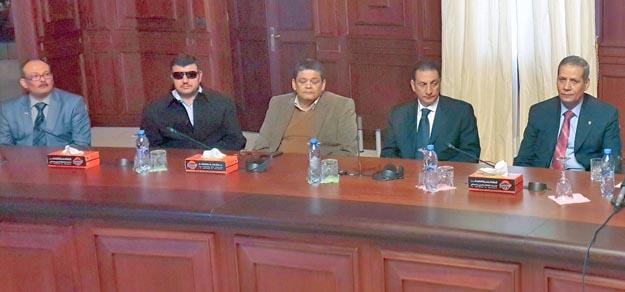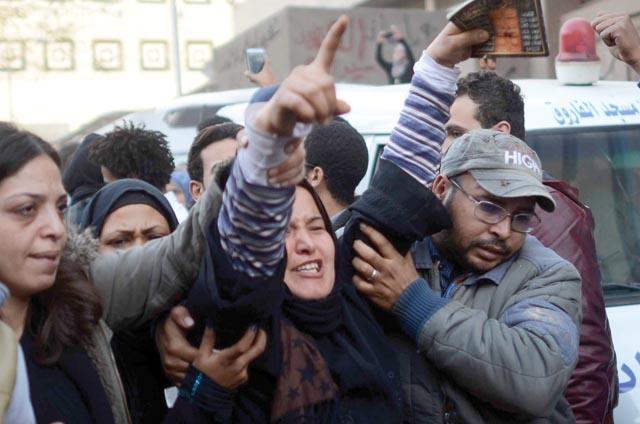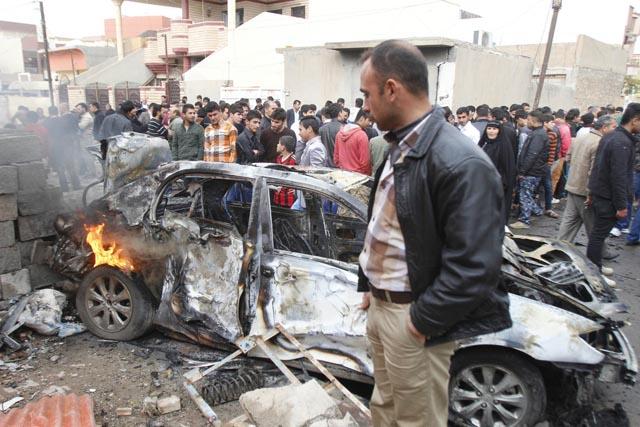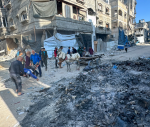RAMALLAH — The controversy over Prime Minister Benjamin Netanyahu’s demand that the Palestinians recognise Israel as a “Jewish state” is rooted in the clashing historical narratives of the decades-old conflict.
Palestinians have dismissed the demand, pointing to the fact that they recognised Israel in 1993 at the start of the peace process and insisting it’s not for other nations to define a state’s national or religious character.
Israeli President Shimon Peres, recipient of the Nobel Peace Prize for the 1993 Oslo Accords with the Palestinians, reportedly agrees, and this week was said to have called the request “unnecessary”.
But Netanyahu insists the demand gets to the very heart of the conflict, which he says is the refusal of Arabs to accept the right of Jews to a nation-state in the Middle East.
For Israel, the Zionist dream was realised in 1948, but for the Palestinians that year brought the “Nakbeh,” or catastrophe, when 760,000 fled or were forced out of their homeland.
The Palestinians fear that accepting Israel as a “Jewish state” would amount to relinquishing the “right of return” of the refugees — who now number some five million people — and undermine the rights of Israel’s sizeable Arab minority.
The dispute was thrown into focus last weekend when the UN cultural agency suspended an exhibit tracing 3,500 years of ties between the Jewish people and the Holy Land following a complaint by 22 Arab member states that it would “impact negatively” on US-brokered peace talks relaunched last year.
In Israel, cancellation of the exhibition was seen as an Arab-led attempt to delegitimise the millenia-long Jewish connection to the land.
“It would not harm the negotiations. Negotiations are based on facts, on the truth, which is never harmful,” Netanyahu told his Cabinet on Sunday.
The Palestinians, who view themselves as the descendants of all the various peoples who have dwelled in the Holy Land since ancient times, saw the staging of the exhibit as an attempt to delegitimise their own connection to the land.
And they view the “Jewish state” demand as a departure from the peace talks, which they say are aimed at creating a Palestinian state and ending the occupation of East Jerusalem, the West Bank and the Gaza Strip that began in 1967.
“We totally reject, on principle, the demand to recognise Israel as a Jewish state,” Palestinian President Mahmoud Abbas said last Friday in Morocco.
“We reject attempts to rub out our historical narrative and to erase our collective memory,” said the Palestinian president, who himself is a refugee from 1948.
‘Obsessive-compulsive behaviour’
Senior Palestinian negotiator Nabil Shaath said last week that Israel had succeeded in imposing its view of events on the latest peace talks, which are being steered by US Secretary of State John Kerry.
“From the Israeli point of view, recognition of the state of Israel as a Jewish state is equal to cancelling the right of return, based on [UN] Resolution 194,” he said, describing it as “an entirely new requirement”.
According to Tel Aviv daily Israel Hayom, Peres also sees Netanyahu’s position as problematic.
“In conversations held by Peres in the past weeks with senior diplomatic and political figures, he explained that this insistence by Netanyahu was ‘unnecessary’,...since it could derail the peace negotiations,” the paper wrote.
“The position of Peres is important and proves that recognition of a Jewish State is not among the final status issues,” chief Palestinian negotiator Saeb Erakat told AFP, referring to core disputes over borders, Jerusalem and security arrangements.
The question of the 1948 refugees is one of the thorniest issues of the talks, with the Palestinians insisting the matter be resolved on the basis of Resolution 194, which defines principles for their “right of return”.
“We will never accept the violation of the rights of refugees, which are guaranteed by international law and international resolutions,” Abbas said.
Israel opposes the return of the refugees and their descendents, arguing that it would destroy the state’s national and religious character by making Jews a minority.
But writing in Israeli daily Haaretz, leftwing commentator Gideon Levy compared Israel to a neurotic person who constantly has to check whether a door is locked or not.
“Israel is exhibiting classic signs of obsessive-compulsive behaviour,” he wrote.
“Everything is directed to achieve the goal that was reached long ago... The prime minister invents demands that the Palestinians recognise a locked door.”
























